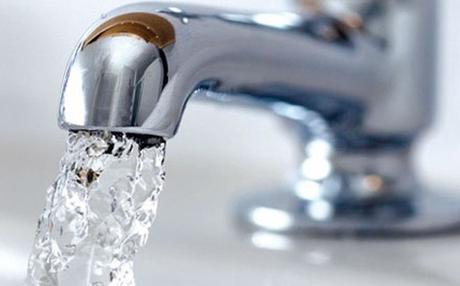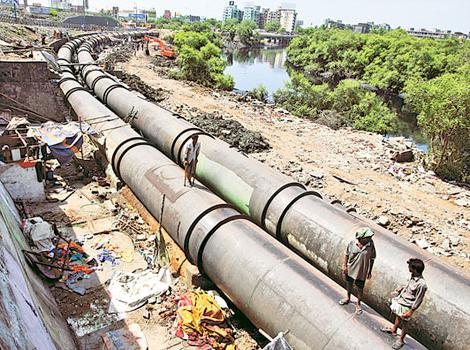At the end of July 2013, the Russian Government approved the Law on Water Supply and Sanitation. This project is designed to regulate the provision of the corresponding type of service. The Regulation stipulates the rules for water supply and sanitation. In this article you can familiarize yourself with them.
General Provisions
The current requirements regulate the relations of executive authorities of both federal significance and subjects of the Russian Federation. Moreover, these norms apply to settlements and cities with local self-government, to institutions providing wastewater and water supply, as well as transportation (including sewage). However, this includes any other coordinating activities in this area. These include the provision of cold water (centralized and non-centralized water supply systems), both drinking and technical purposes. Moreover, these same orders apply to drains that enter the central pipeline system.
Provisions for residential and apartment buildings
It should be noted separately that relations between institutions of the water supply and sewer industry and owners (users) of residential premises (both in multi-apartment and in the private sector) are regulated by the Federal Law "On Water Supply and Sanitation" only in a part that is not regulated by housing legislation. The same conditions apply to housing cooperatives (including consumer associations of any other specialization) and partnerships of owners of households and apartments. In addition, these circumstances apply to management companies whose work is to provide utilities, including cold water supply and sanitation to the owners (users) of the above premises.
Basic concepts
The current Law "On Water Supply and Sanitation" establishes and clarifies a number of concepts. Let's consider some of them. The following points are highlighted in the Regulation:
1. "The boundaries of the balance sheet" - are lines that carry out the separation of the water supply and sanitation. They pass between the owners in accordance with the sign of ownership or possession on other legal grounds. There is a separation between the objects in relation not only to centralized systems, but also to sewer and water supply networks.
2. "Accident" is an event that is extremely dangerous. Usually leads to the fact that the water supply and sanitation ceases completely or partially. Moreover, in most cases it poses a threat to the environment, as well as to human health. Moreover, it does not matter where the disaster occurred - on central, sewer or water supply systems (including individual facilities).
3. “Control sample” is an analysis of the wastewater that enters the central pipeline. It is carried out in order to accurately determine the properties and composition of the selected fluid. The fence is made from the sewer control well.
4. A “transit organization” is an institution that provides a water transfer service. An event of this kind also carries out the transportation of effluents. For this purpose, they use their own water supply and sewage systems. It is worth noting that an individual entrepreneur can also act on behalf of this organization.
5. "Control well" is a well that is designed to collect wastewater from the consumer. It is necessarily stipulated either in a separate contract, or in a single agreement for water supply and sanitation, or in another agreement. In addition, the last well located on the pipeline path from the consumer can also be used as a container for sampling. However, only if it is not embedded in the central pipe.
6. “Surface wastewater” is all that enters the sewage system from the environment. Namely: thawed, drainage, rain, irrigation and infiltration emissions.
Emergencies: General Provisions
In the event of a hazardous situation, special requirements are established in accordance with which water supply and sanitation are provided. SNiP contains technical norms and standards (both state and national). In addition, there is a specially designed manual. It regulates the work with the drinking water supply system during an emergency.
Contracting procedure
Since water supply and sanitation is carried out on the basis of an agreement, there is a certain procedure for its preparation.
1. When a central pipeline is used, 3 types of contracts can be signed. Agreements are concluded separately for supply or water disposal. There is also a general contract.
2. Transactions of this kind are always concluded in accordance with accepted models established by the Russian Government. This document is certified, on the one hand, by the subscriber, and on the other, by the representative of the organization providing the service. The agreement, among other things, may include tariffs for water supply and sanitation.
3. In the event that local governments to provide a client with cold water and sewer networks use a third-party organization as a guarantor, the above agreements are concluded directly with it.
4. In the absence of a voucher, subscribers may sign contracts (including agreements of a single nature) with the institution whose facilities are connected to the pipeline or sewage system.
Grounds for concluding an agreement
The contract for water supply and sanitation is concluded only after the client submits an application (subscriber's application). Or upon receipt of such a proposal from the institution providing the service, or the guaranteeing organization (if any). It is worth noting that in the case when the tenant cannot be personally present at the conclusion of the agreement, an authorized representative can sign all the papers on his behalf. However, to perform such actions is possible only with a power of attorney.
Document Verification Dates
From the moment a subscriber submits an application to an organization providing water services, 20 days are allotted for its consideration. In the event of a partial absence of the required information (documents) within 5 working days (from the day the application was submitted), the client receives a notification about the need to provide the institution with the missing information. As soon as such a message is sent to the applicant, the consideration of the materials is suspended until all the necessary information is received. These conditions are provided for by applicable requirements (16 and 17 clauses). A water supply and sewage institution has the full right to stop considering the option of connecting a subscriber to a pipeline or wastewater system and return to him all the documents indicating the exact reason. It is worth noting that such actions are possible only if the required information is not provided on time (that is, within 20 days from the date of notification).

Contract process
When a company providing services or a guaranteeing organization (after choosing one) makes a decision on concluding a transaction, the subscriber is sent a draft of the relevant agreement in 2 copies, which, among other things, contains a water supply and sanitation scheme. The client receives these documents regardless of the type of agreement. The package of papers is one and only if a person enters into an agreement only for the provision of cold water or for the use of the sewer system, or signs a general contract. The preparation of this document is carried out on the basis of standard samples, which were reviewed and approved by the Russian government.
Reasons for refusal
In the case when applications from several subscribers for connection to the central pipeline of the same facility are received by the plumbing and sewer organization, consideration of this issue may be suspended. At the same time, certain deadlines are set. If the institution decides to suspend consideration of applications, then all customers who submit documents are required to submit evidence of their authority to sign an agreement on cold water supply, sanitation (or a general agreement) within 30 days. That is, to submit an extract from the Unified State Register for the real estate indicated in the appeal. If the required documents (confirming the client’s credentials) are not submitted within the established time period, the water company has the right to stop accepting the application and return it to the subscriber indicating the reason. On the other hand, if the submitted documents comply with the applicable rules, the organization undertakes to send the client draft agreements (approved by the Russian Government) in 2 copies within 20 days from the moment they are received.

Duration of consideration of agreements by the applicant
After receiving the relevant papers no later than 30 days later, he must sign them and send one sample to the institution to which he will be connected to the sewage system or pipeline. When an authorized person speaks on behalf of a client, then evidence must be provided with the documents confirming the authority of the person. If during the indicated period the client did not return draft agreements to the organization, then they are considered concluded on the conditions indicated in the papers. The same decision is made in case of an untimely proposal to amend the developed agreement. It should be noted that amendments to the document are considered only when they do not contradict the adopted law.
Document Correction Terms
From the moment of receiving the draft agreements for connection to the drain system or the central pipeline, the subscriber has the right to make a proposal for a change in the submitted securities for 30 days. However, these corrections must not contradict the Federal Law, as well as the applicable requirements and standard designs adopted by the Russian government. The client sends the appropriate adjustments to the organization with which the contract is concluded in any convenient way. The main thing is that the subscriber receives confirmation of the delivery of these documents.
Change Review Terms
When the institution, to which the client plans to connect to the pipeline and sewage system, receives an agreement with the indicated amendments, it undertakes to review them within 5 days. Moreover, in the specified time period, the company must take the necessary measures to eliminate all disagreements and return new samples of agreements to the subscriber for review and signing. The client, for its part, from the moment of receipt of the corrected documents undertakes to review and sign both copies of the new agreement in the same time period. If the organization fails to make these changes, as well as untimely provision of the amended agreements, the applicant has the right to apply to the court. At the same time, he may put forward requirements to force the company to conclude a contract.
Contract renewal terms
The transaction between the client and the company providing water supply and sanitation is concluded for a certain period of time, which is indicated in the agreement. If 30 days before the expiration of the specified date, none of the parties notifies its termination, the validity period of these documents will be extended by the same time period. It is worth noting that these same conditions apply to the introduction of possible changes or to the conclusion of an agreement with new requirements.
Payment
At the beginning of 2014, certain tariffs for water supply and sanitation were set for the population of Moscow (this applies to all residents of the region, except Novomoskovsky and Troitsky districts). Cold water costs 28.40 per cubic meter, water disposal - 20.15. Prices at the end of the year will be slightly higher. As of November 2014, the cost of a cubic meter of cold water will be 29.16, water disposal - 20.69.